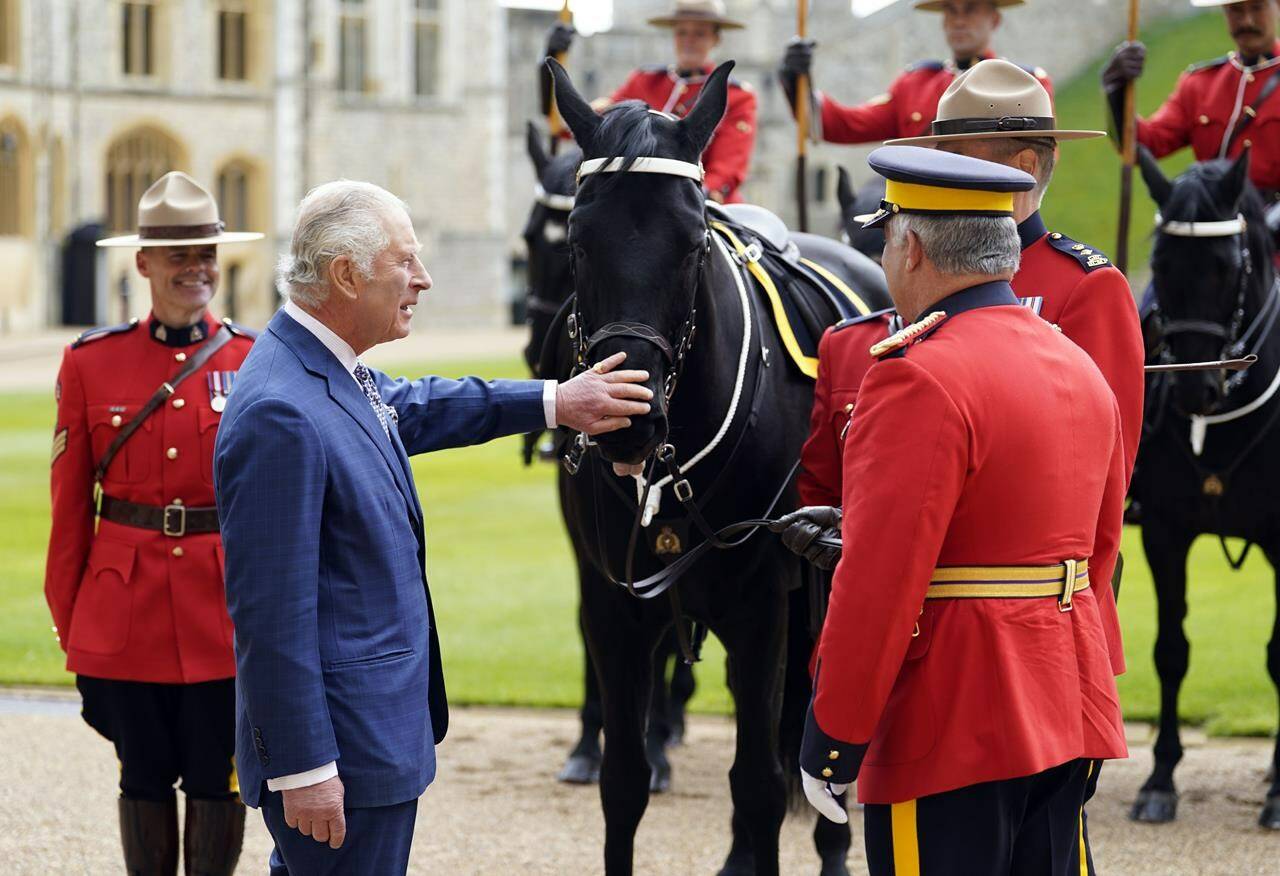Royal jewels dating back centuries. A four-tonne horse-drawn coach. A next-day concert and a nation illuminated by lasers and drone-driven lights.
Elaborate tradition tinged with present-day sensibilities is expected at next weekend’s coronation of King Charles III, when the 74-year-old officially establishes a new era of the monarchy.
The ancient ritual is typically an extravagant display of solemn pageantry that dates back more than 1,000 years.
But Buckingham Palace has hinted at a scaled-down version compared to previous spectacles, and promised modern touches, too. Details have been sparse and slow to release in recent weeks. Here’s what we know about the coronation of King Charles III:
What is a coronation ceremony?
An heir instantly becomes the new monarch when the king or queen dies but there is also a mourning period, so public affirmation must wait. A coronation ceremony offers a platform for that transition. In this case, King Charles III will be crowned eight months after Queen Elizabeth II’s death Sept. 8, 2022.
The coronation itself is part of a Christian service in which the monarch makes promises to God and the people they serve.
What will happen?
It all starts with a procession from the Palace to Westminster Abbey, where the Archbishop of Canterbury will conduct a service on Saturday, May 6at 11 a.m. GMT. King Charles III is expected to take the coronation oath and be “anointed, blessed and consecrated” while sitting in King Edward’s chair, a 1,000-year-old oak throne used by every sovereign since 1626.
Buckingham Palace says the ceremony will incorporate numerous ancient heirlooms, including a 17th century gold and jewel orb that symbolizes the Christian world, and two sceptres – one with a cross that is associated with good governance, the other topped by an enamelled dove representing the Holy Ghost.
He’s officially crowned King Charles III when the Archbishop puts St. Edward’s Crown on his head. Camilla, Queen Consort will be crowned in a similar but simpler ceremony.
A procession then returns Their Majesties to Buckingham Palace in the ornate four-tonne Gold State Coach too heavy to move faster than walking speed. They’re expected to be met with a salute from various Armed Forces from across the Commonwealth, and three cheers from service personnel.
The King and The Queen Consort, accompanied by members of the Royal Family, will then appear on the balcony.
What’s different this time?
Despite the elaborate ceremony, this promises to be a relatively modest coronation. Queen Elizabeth II’s was a nearly three-hour affair with more than 8,000 guests in 1953.
Nearly 70 years later, Buckingham Palace has announced a guest list that’s a fraction of that at more than 2,000 invitations. It also promises the event itself will “reflect the monarch’s role today and look towards the future.”
A next-day concert is headlined by global stars Katy Perry and Andrea Bocelli, but organizers have also reached out to performers from marginalized groups across the United Kingdom. It’s touting a performance by the Coronation Choir, made up of community choirs and amateur singers including refugee choirs, LGBTQ singing groups and deaf signing choirs. A so-called virtual choir will add in singers from across the Commonwealth.
During the show, Buckingham Palace says U. K. landmarks will be lit up with projections, lasers and drone displays.
What’s happening here?
In Ottawa, the federal government will host an hour-long celebration Saturday morning across the street from Parliament Hill with music, art, a 21-gun salute and the revelation of Canada Post’s first stamp with the King’s image.
Canadian Heritage says there will also be free activities at Rideau Hall on Saturday and Sunday, when the Governor General’s residence, grounds and greenhouse will be open to the public. The Peace Tower and other local federal buildings will be lit emerald green and Ottawa is encouraging landmarks across the country to do the same.
Lieutenant-governors and territorial commissioners are expected to also host events in communities across the country, including military parades, tree plantings and exhibitions.
The Canadian Press

